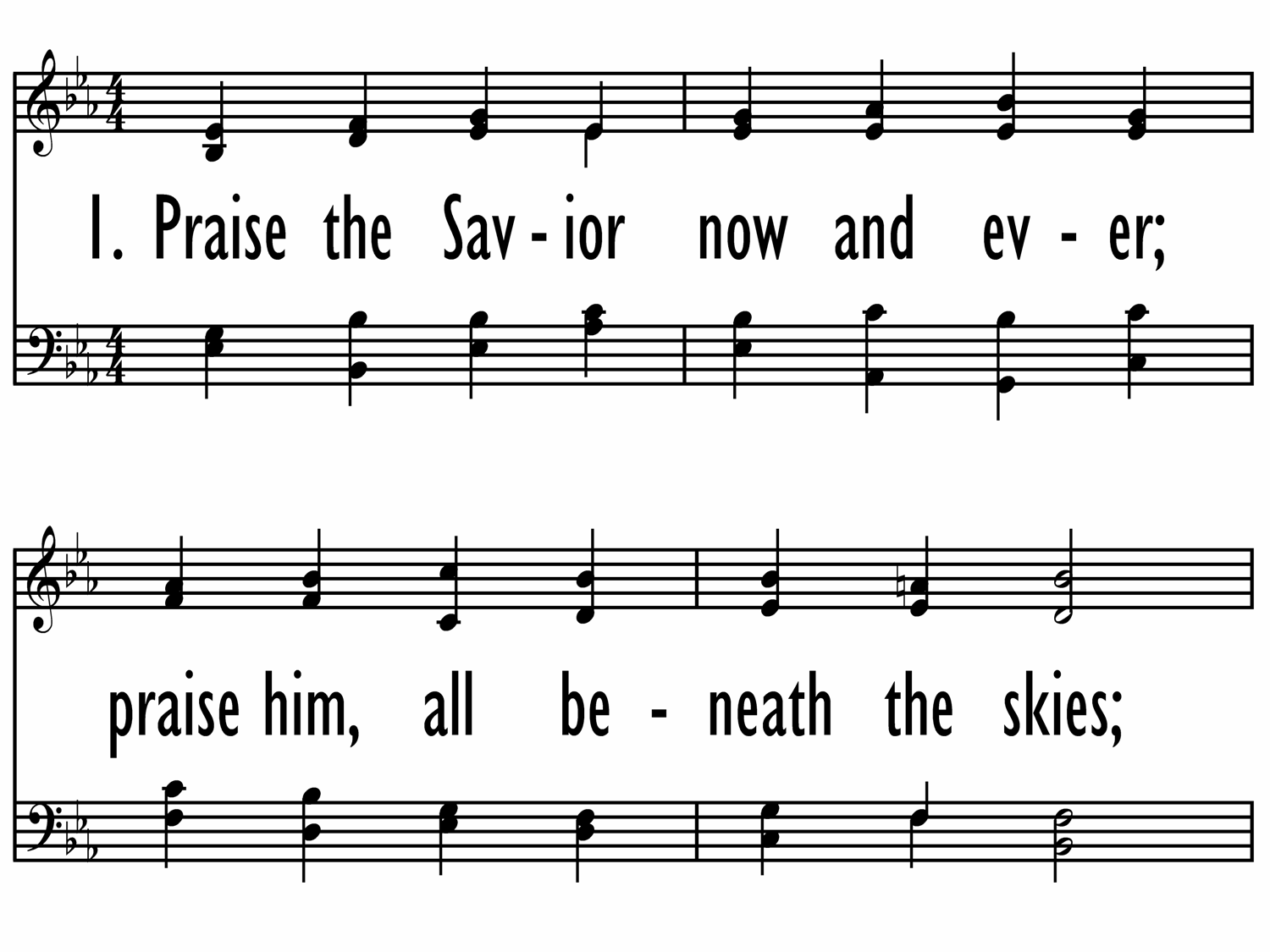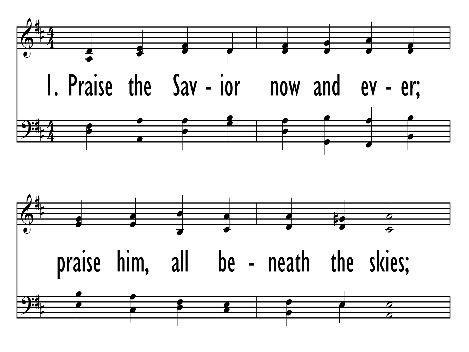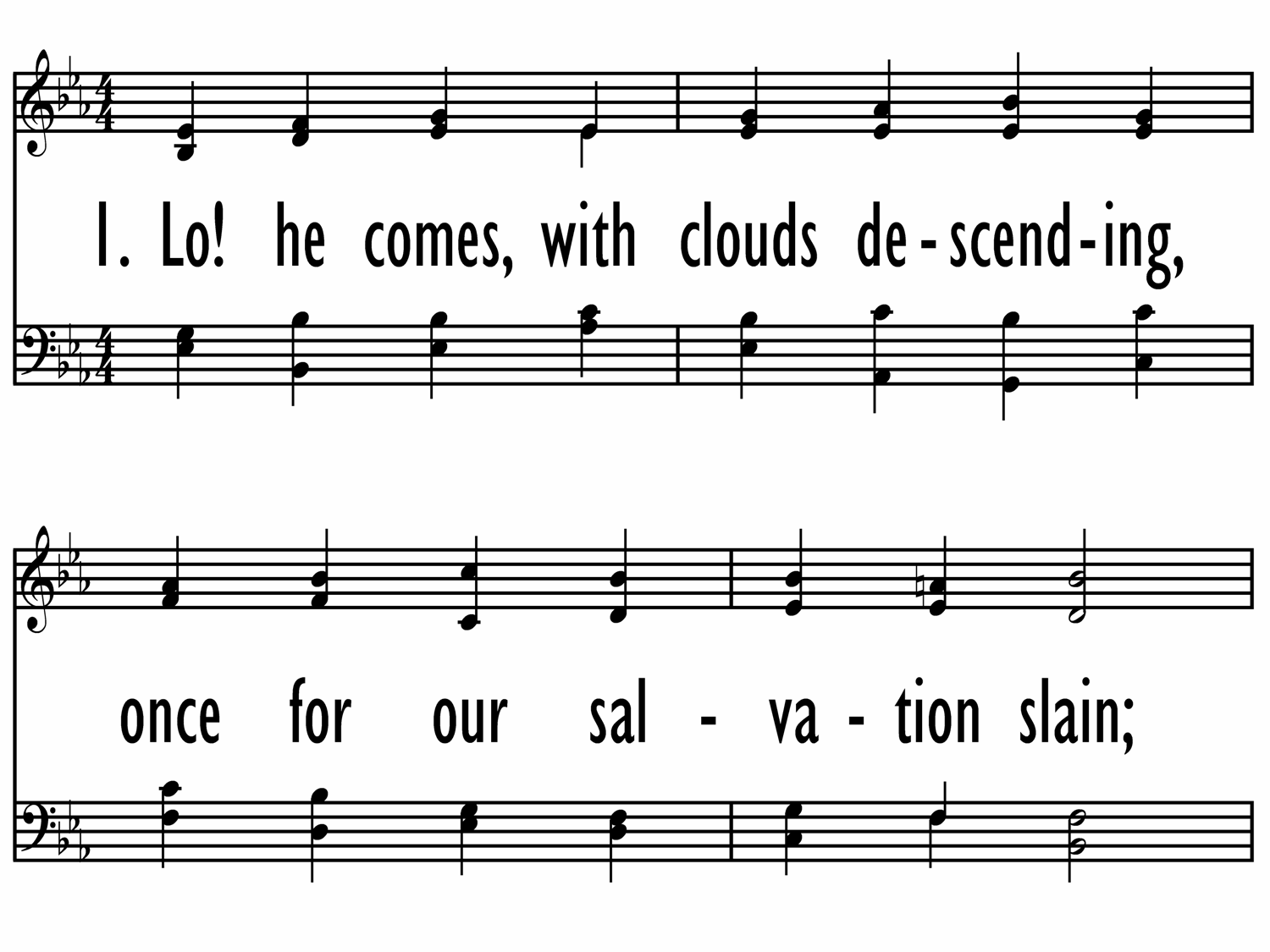- |
User Links
Praise the Savior, Now and Ever
Hymn Information
- First Line
- Praise the Savior, now and ever
- Author
- Venantius Honorius Fortunatus (569)
- Translator
- Augustus Nelson, 1863-1949 (alt.)
- Tune Name
- UPP, MIN TUNGA
- Tune Source
- <cite>Then Swenska Psalm-Boken</cite>, 1697
- Topic
- Biblical Names and Places: Serpent · Church Year: Easter/Season of Easter · Doxologies · Occasional Services: Funeral/Witness to the Resurrection
Copyright Information
- Text Copyright
- Public Domain
- Tune Copyright
- Public Domain
- Reprint/Projection Information
- Words and Music: The Words and Music are in the Public Domain; you do not need permission to project or reprint the Words and Music.
Full Text
Scripture References
- ·
Thematically related:
- st. 2 =
- st. 3 = ·
Further Reflections on Scripture References
The text sets forth the gospel of Easter: Christ who died has risen in victory (st. 1), has set us free from sin (st. 2), and has conquered death and hell itself (st. 3); to that confession we respond with our praise-a doxology to the Trinity (st. 4).
Psalter Hymnal Handbook
Confessions and Statements of Faith References
Further Reflections on Confessions and Statements of Faith References
Easter hymns accomplish three functions: they recount the Easter narrative, proclaim our Easter hope, and celebrate our joy at Christ’s resurrection. This hymn is built on the professions of Easter truths that are expressed primarily in Heidelberg Catechism. Note especially the following:
- Lord’s Day 17, Question and Answer 45 declares that Christ’s resurrection makes us share in Christ’s righteousness, raises us to a new life by his power, and is a sure pledge to us of our resurrection.
- Lord’s Day 22, Question and Answer 57 comforts us to know that not only our soul but “also my very flesh will be raised by the power of God, reunited with my soul, and made like Christ’s glorious body.”
- Lord’s Day 22, Question and Answer 58 says that it may be a comfort to know that while experiencing the beginning of eternal joy now, “after this life I will have perfect blessedness such as no eye has seen, no ear has heard, no human heart has ever imagined: a blessedness in which to praise God forever.”
In addition, Our Song of Hope, stanza 5 professes: “On the day of the resurrection, the tomb was empty; His disciples saw Him; death was defeated; new life had come. God’s purpose for the world was sealed.”
Praise the Savior, Now and Ever
Words of Praise
Assurance
Additional Prayers
Praise the Savior, Now and Ever
Tune Information
- Name
- UPP, MIN TUNGA
- Key
- E♭ Major
- Meter
- 8.7.8.7.8.7


 My Starred Hymns
My Starred Hymns






